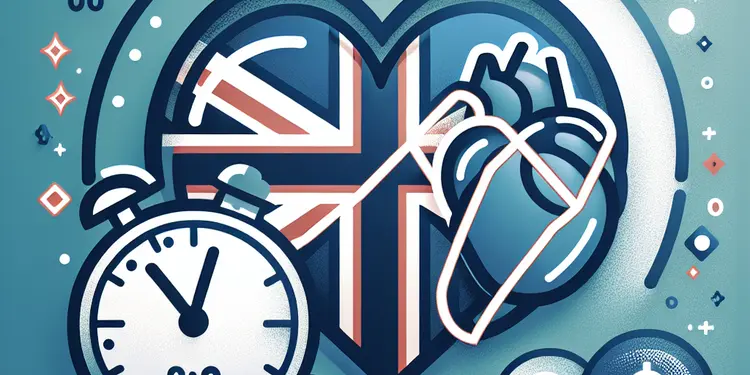
Find Help
More Items From Ergsy search
-
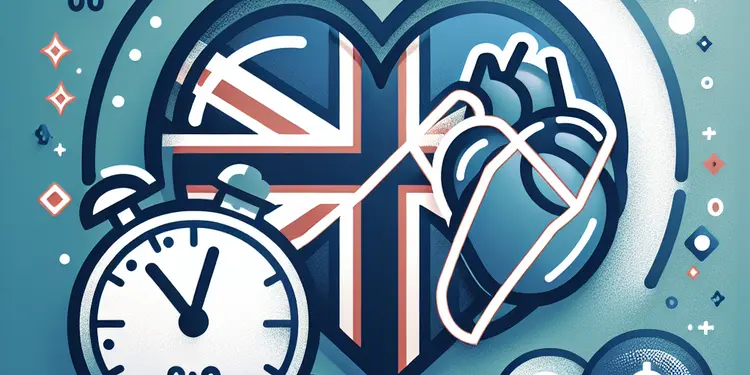
How long do heart attack symptoms last?
Relevance: 100%
-

Are heart attack symptoms different for people with diabetes?
Relevance: 99%
-

Can heart attack symptoms vary by age?
Relevance: 99%
-
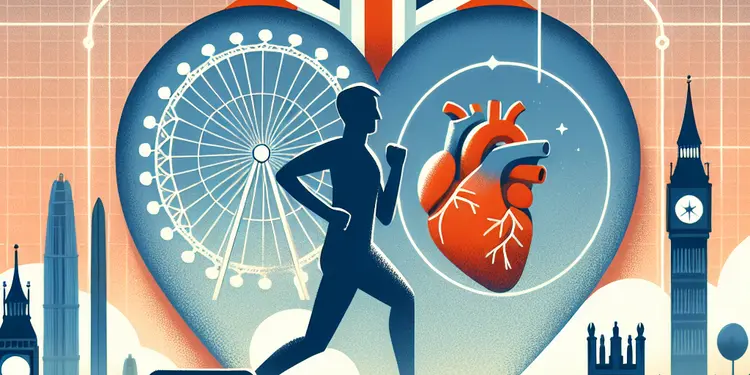
What should I do if I'm experiencing heart attack symptoms?
Relevance: 98%
-

Heart Attack Symptoms - Peter Dale (Tubes) | NHS
Relevance: 96%
-

Heart Attack Symptoms - Help Us Help You | NHS
Relevance: 95%
-

Can women have different heart attack symptoms than men?
Relevance: 91%
-

Heart Attack Symptoms - Peter Dale (Tubes) | NHS - BSL version
Relevance: 90%
-

Heart Attack Stories | NHS
Relevance: 90%
-

Heart Attack Stories | NHS
Relevance: 89%
-
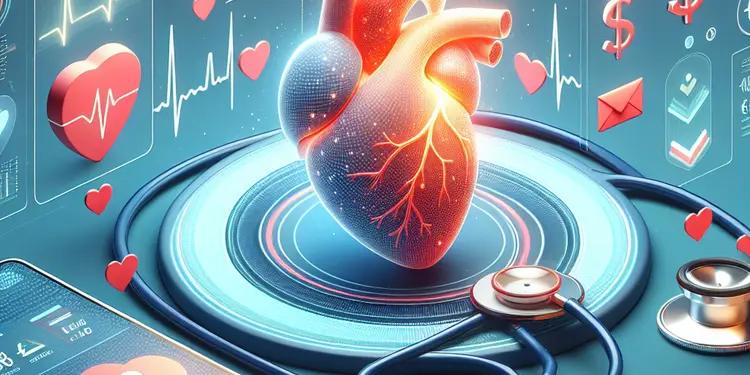
Is it possible to prevent a heart attack?
Relevance: 83%
-
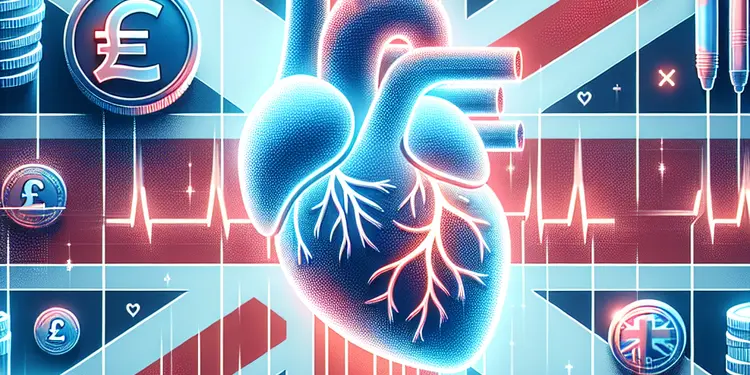
What are the long-term effects of a heart attack?
Relevance: 82%
-
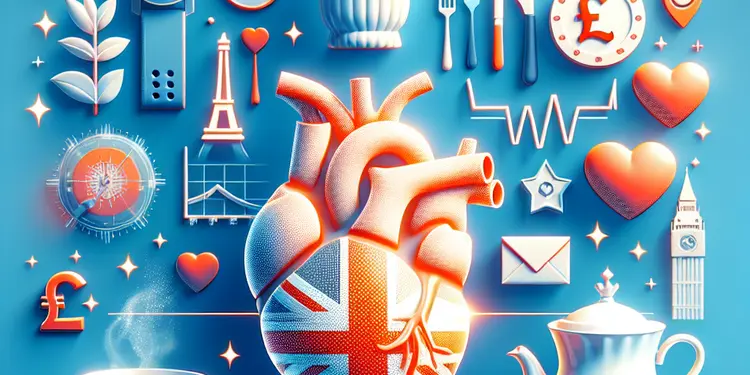
Is it possible to have a heart attack without chest pain?
Relevance: 82%
-
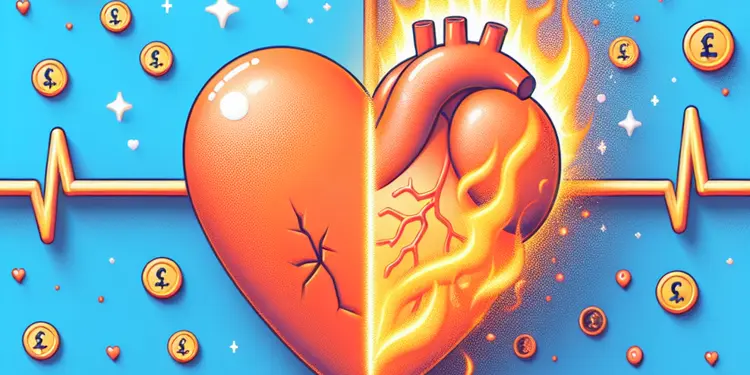
How can I differentiate between heartburn and a heart attack?
Relevance: 81%
-
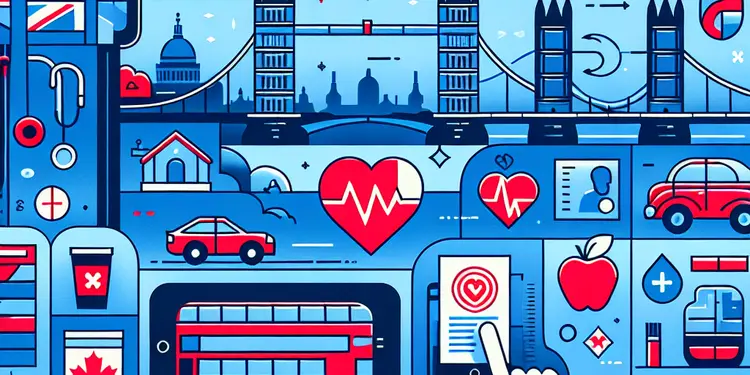
What are the risk factors for a heart attack?
Relevance: 80%
-
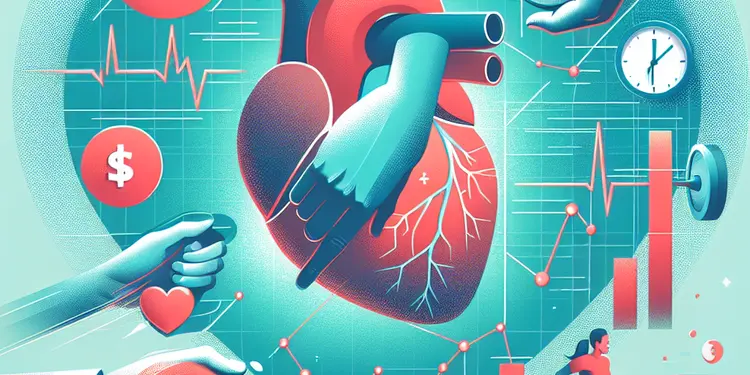
Can physical exertion trigger a heart attack?
Relevance: 77%
-
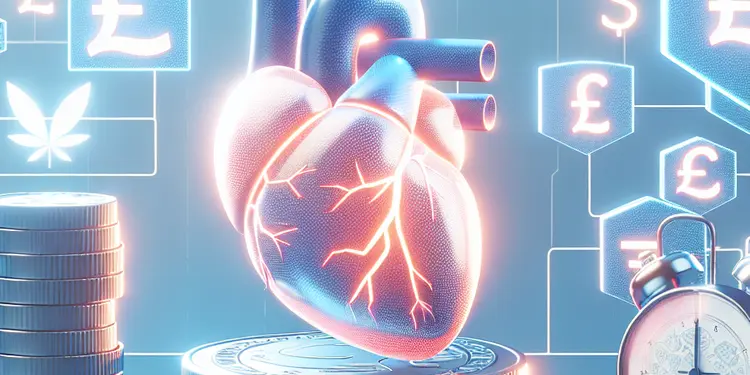
How do beta-blockers contribute to heart attack prevention?
Relevance: 75%
-

Heart attack care - Raigmore Hospital Inverness, NHS Highland
Relevance: 75%
-
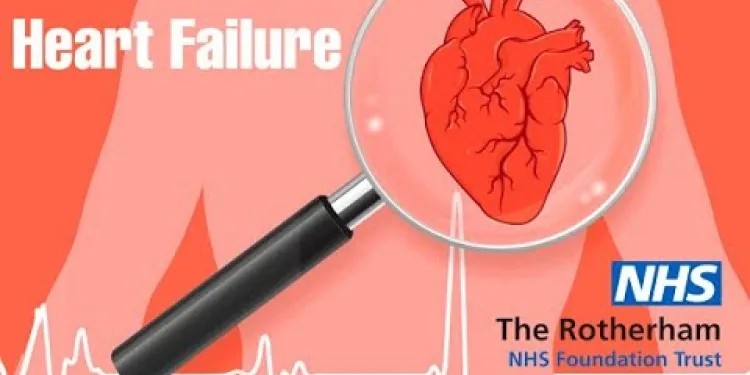
Heart Failure : Symptoms of heart failure
Relevance: 72%
-
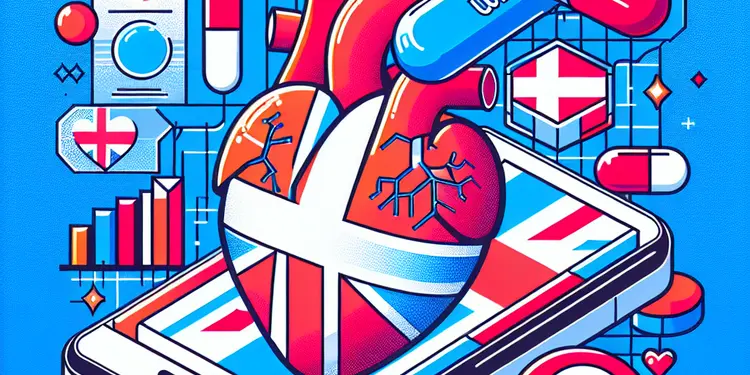
Do calcium channel blockers help in preventing heart attacks?
Relevance: 71%
-

What drugs are commonly prescribed to reduce the risk of heart attacks?
Relevance: 71%
-
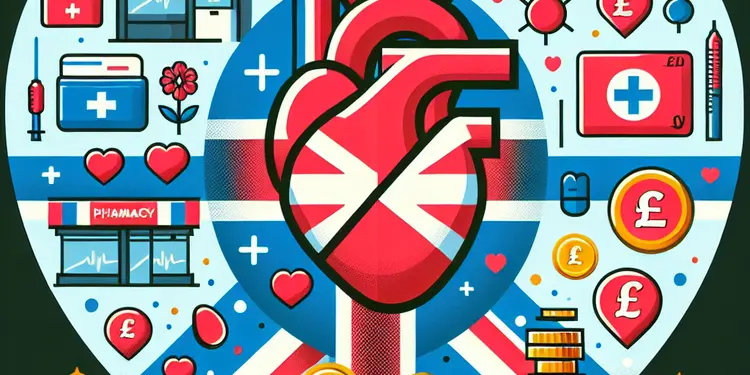
Do over-the-counter medications help in preventing heart attacks and strokes?
Relevance: 71%
-
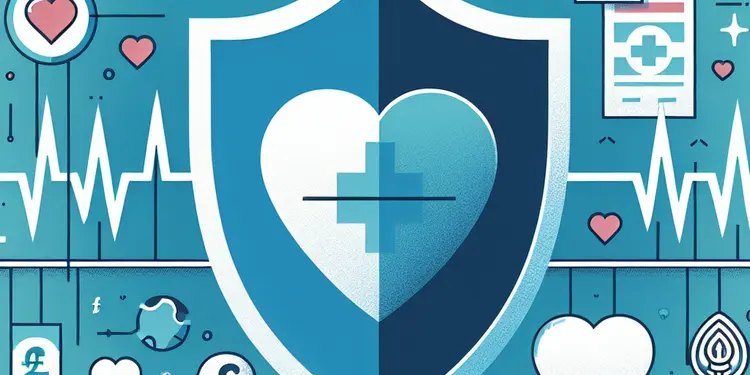
When should one start taking medication for heart attack prevention?
Relevance: 71%
-
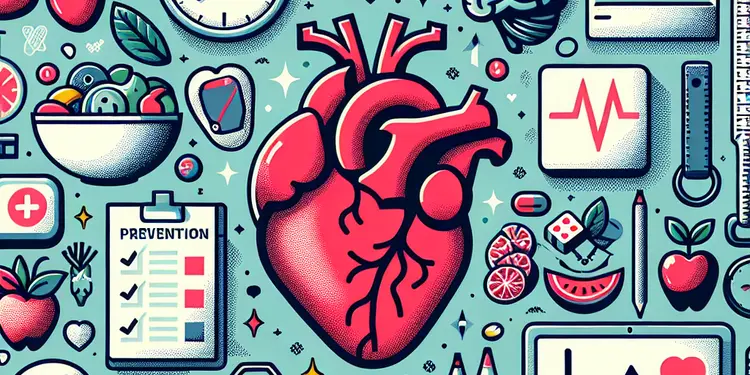
What is the role of lifestyle modification in heart attack and stroke prevention?
Relevance: 69%
-

Do all patients need medication to prevent heart attacks and strokes?
Relevance: 69%
-
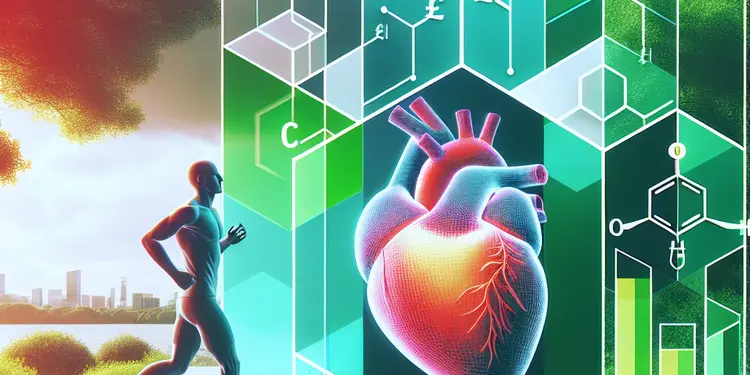
What is the role of PCSK9 inhibitors in heart attack prevention?
Relevance: 67%
-

Can diabetes medications also help reduce heart attack risk?
Relevance: 66%
-
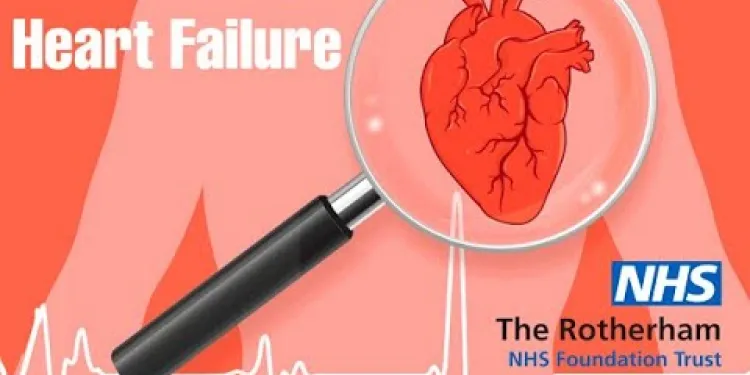
Heart Failure : When the heart becomes stiff?
Relevance: 59%
-
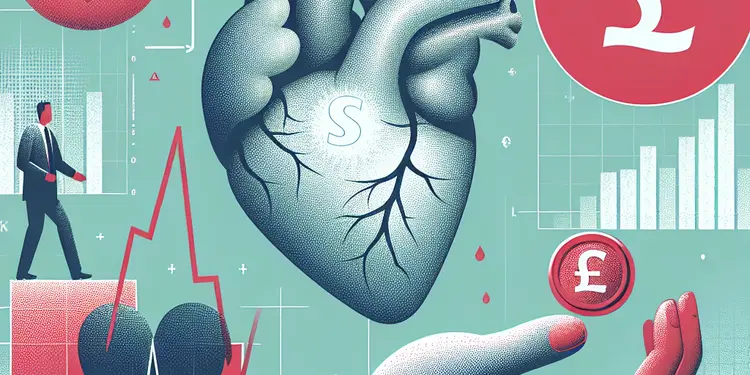
What should I do if I experience symptoms of heart failure?
Relevance: 58%
-

Heart Failure : The normal heart
Relevance: 57%
-
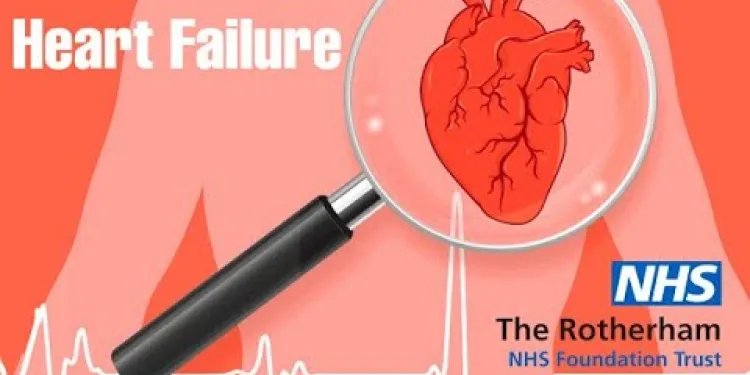
Heart Failure : What is heart failure?
Relevance: 56%
-
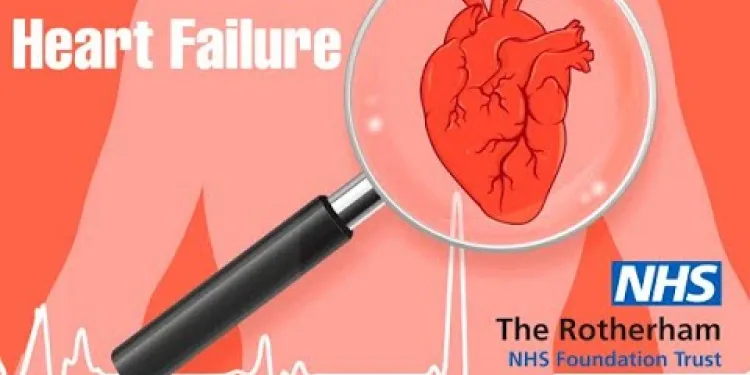
Heart Failure : Heart failure that cannot pump
Relevance: 56%
-
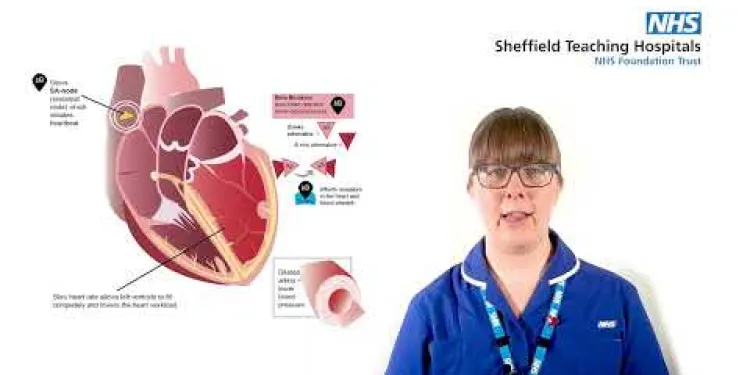
Medicines of the heart
Relevance: 55%
-
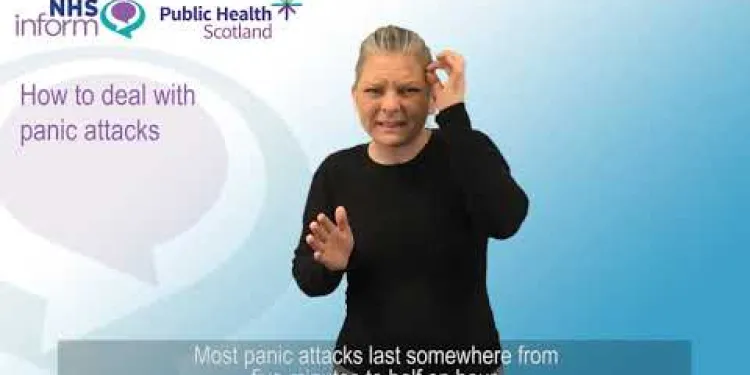
BSL - How to deal with panic attacks
Relevance: 54%
-
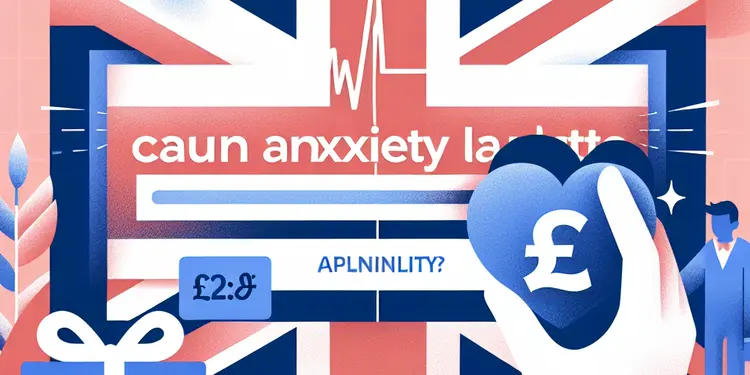
Can anxiety cause heart attack-like symptoms?
Relevance: 54%
-

Heart stents
Relevance: 54%
-
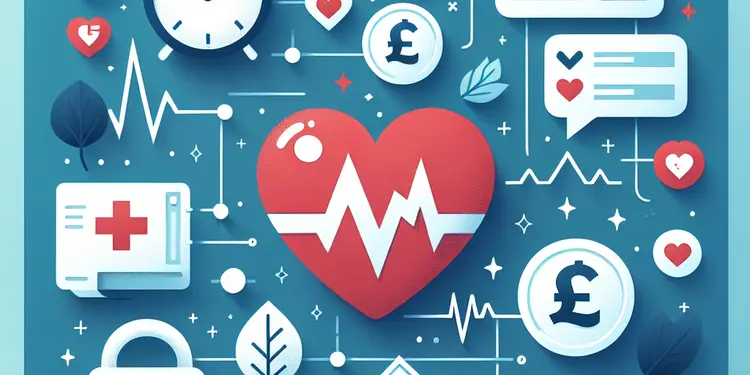
What are the most common symptoms of a heart attack?
Relevance: 54%
-

Heart failure introduction
Relevance: 54%
-
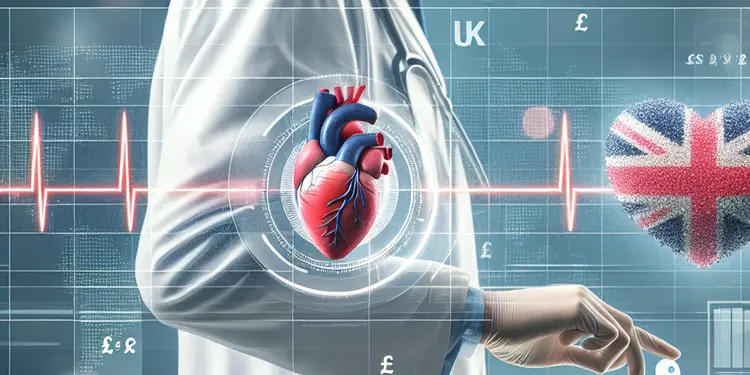
How is heart failure diagnosed?
Relevance: 51%
-

Are there different types of heart failure?
Relevance: 51%
Understanding Heart Attack Symptoms
When someone is experiencing a heart attack, recognising the symptoms early can be crucial for effective treatment and improved outcomes. Heart attack symptoms can vary widely in their presentation and duration. It’s important to be familiar with these symptoms to identify them promptly.
Common Heart Attack Symptoms
Heart attacks, or myocardial infarctions, commonly present with several symptoms, the most significant being chest pain or discomfort. This discomfort is often described as a feeling of pressure, squeezing, fullness, or pain and typically occurs in the centre or left side of the chest. However, symptoms can extend beyond chest pain and include discomfort in other parts of the upper body, shortness of breath, nausea, light-headedness, or cold sweats.
Duration of Heart Attack Symptoms
The duration of heart attack symptoms can differ greatly from person to person. Some symptoms, such as chest pain, may come and go over a period of time, or they may be persistent. Heart attack symptoms can last for several minutes or persist for hours. Importantly, if chest pain or other related symptoms last more than a few minutes, it's imperative to seek immediate medical attention.
Some individuals may experience symptoms that start subtly and intensify over time, whereas others may have intense and sudden symptoms. The variability makes it essential to act swiftly regardless of the symptom duration. In some cases, silent heart attacks occur where symptoms are mild or atypical, making them harder to recognise.
The Importance of Immediate Medical Care
Regardless of the duration, timely medical intervention can significantly influence recovery and outcomes. Quick action is essential, as prolonged deprivation of blood to the heart muscle can result in significant damage or be life-threatening. Emergency services are trained to handle such medical emergencies, and early treatment can help restore blood flow to the heart, reducing damage.
If you or someone else experiences heart attack symptoms, even if they seem to subside, it's critical to call emergency services right away. Do not delay treatment or attempt to drive yourself to the hospital.
After the Symptoms Subside
After an individual receives treatment and the immediate heart attack symptoms subside, ongoing care and monitoring are essential. Doctors typically recommend various follow-up treatments, lifestyle changes, and medications to prevent further complications. Understanding the symptoms and their potential duration can help you respond effectively in such critical situations.
What is a Heart Attack?
A heart attack happens when your heart doesn't get enough blood. It's very important to know the signs of a heart attack so you can get help quickly.
How to Tell if Someone is Having a Heart Attack
The most common sign of a heart attack is chest pain. The chest might feel like it's being squeezed, pressed, or is very full. You might also feel pain in your arms, back, neck, or jaw. Other signs include feeling short of breath, feeling sick, feeling dizzy, or having cold, sweaty skin.
How Long Do Symptoms Last?
Heart attack signs can last different amounts of time. Chest pain might come and go, or it might last a long time. If you have chest pain or any signs for more than a few minutes, get help right away. Some people have signs that start out small and get worse, while others have strong signs that start quickly. Sometimes, people have heart attacks without the usual strong signs, making them hard to notice.
Why Getting Help Fast is Important
Getting medical help fast can make a big difference in getting better. If the heart goes without blood for too long, it can get seriously damaged or be life-threatening. Emergency workers know how to take care of heart attacks and can give treatment quickly to help the heart.
If you or someone else shows signs of a heart attack, call emergency services immediately. Don't wait or try to drive to the hospital yourself.
After Getting Help
After the heart attack is treated, it is important to keep seeing the doctor and taking any medicine they give you. Doctors might suggest changes to how you live so you can stay healthy. Knowing what to look for can help keep you safe and healthy.
Frequently Asked Questions
How long do heart attack symptoms typically last?
Heart attack symptoms can last for more than 15 minutes. Some symptoms may persist even longer and can be intermittent, continuing for hours.
Can heart attack symptoms last for days?
Yes, certain mild symptoms like fatigue, mild chest discomfort, or shortness of breath may last for days or even weeks leading up to a heart attack.
What are the common durations for heart attack chest pain?
Chest pain typically lasts more than 15-20 minutes and may not improve with rest. If it lasts longer or disappears and returns, it should be evaluated immediately.
Can heart attack symptoms come and go?
Yes, symptoms can be intermittent, come and go, or vary in intensity before becoming constant and severe during a heart attack.
How quickly should one seek treatment for heart attack symptoms?
Immediate medical attention is crucial, ideally within the first hour of symptom onset. Delays can increase heart damage.
What indicates that heart attack symptoms are serious?
Symptoms lasting more than a few minutes, worsening quickly, or not improving with rest require emergency medical attention.
Can anxiety cause symptoms similar to a heart attack?
Yes, anxiety and panic attacks can mimic heart attack symptoms, but it's important to seek medical evaluation to rule out a heart attack.
How are heart attack symptoms different from indigestion?
Heart attack pain is often more intense and persistent, whereas indigestion is typically related to meals and might improve with antacids.
Does the duration of symptoms indicate the severity of a heart attack?
While longer-lasting symptoms can indicate a severe heart attack, any heart attack is serious and requires immediate attention regardless of symptom duration.
Can heart attack symptoms resolve on their own?
Symptoms might temporarily resolve, but this doesn't mean the danger has passed. Medical evaluation is necessary to ensure safety.
What are early warning signs of a heart attack regarding symptoms duration?
Early signs can include fleeting chest discomfort, fatigue, shortness of breath, and symptoms that come and go over days.
How long can chest pain from a heart attack last before becoming critical?
Critical heart attack-related chest pain often lasts longer than 15 minutes and may become more severe, requiring immediate medical intervention.
Is it normal for heart attack symptoms to vary in intensity?
Yes, symptoms can vary in intensity and may become severe over time. Monitor any suspected symptoms closely and seek immediate help.
Can women experience heart attack symptoms differently in terms of duration?
Yes, women often have subtle symptoms which may last longer or can be dismissed, such as unexplained fatigue, nausea, and back or jaw pain.
How does the onset of symptoms affect heart attack outcomes?
Quick recognition and response to symptoms can significantly improve outcomes and reduce heart damage. Delayed response increases risks.
What atypical symptoms might indicate a long-lasting heart attack?
Atypical symptoms like prolonged mild discomfort, fatigue, lightheadedness, and digestive upset can indicate heart trouble, especially in women.
Can heart attack symptoms recur after initial improvement?
Yes, symptoms might improve temporarily but can recur, indicating an ongoing issue that needs urgent medical evaluation.
Do all heart attacks present with prolonged symptoms?
Not always. Some heart attacks might present without any typical symptoms, being silent, or only cause mild discomfort.
Can changing conditions cause fluctuating heart attack symptoms?
Yes, physical activity or emotional stress can exacerbate symptoms, making them more prolonged or severe.
How important is it to recognize short-lived heart attack symptoms?
Even short-lived symptoms can precede a heart attack. Recognizing and responding to these signs quickly can prevent a complete heart attack.
How long do heart attack signs usually last?
Heart attack signs can last over 15 minutes. Sometimes, they stay for a long time and can come and go for hours.
Can signs of a heart attack last for many days?
Yes, feeling very tired, having a little chest pain, or feeling short of breath can happen before a heart attack. These feelings might last for a few days or even weeks.
How long does chest pain from a heart attack last?
Chest pain from a heart attack can last a few minutes. It might stop and start again. If you feel chest pain, talk to a doctor straight away.
Helpful Tools: Try using pictures to understand better or ask someone to explain.
Chest pain can last for more than 15 to 20 minutes. It might not get better when you rest. If the pain lasts a long time or goes away and comes back, you should see a doctor right away.
Do heart attack signs start and stop?
Yes, the signs can start and stop. They can be strong, then weak, before staying strong during a heart attack.
How fast should you get help if you think you have a heart attack?
Getting help from a doctor fast is very important. Try to see a doctor in the first hour when you notice something is wrong. Waiting too long can hurt your heart.
How do you know if heart attack signs are important?
Some signs mean you need to see a doctor quickly. These signs include:
- Chest pain that is strong.
- Feeling like your chest is being pressed or squeezed.
- Pain moving to other parts like arms, neck, or back.
- Feeling sick or dizzy.
- Finding it hard to breathe.
If you feel any of these, tell an adult or call 911 straight away. It is important to get help.
Get help right away if the symptoms last more than a few minutes, get worse quickly, or don't get better when you rest.
Can feeling very worried make you feel like you're having a heart attack?
Yes, feeling very worried or having a panic attack can feel like a heart attack. But you should see a doctor to make sure it's not a real heart attack.
If you feel like this, there are things that can help:
- Try to take slow, deep breaths.
- Sit down and rest for a while.
- Talk to someone about how you feel.
Tools, like breathing apps or calming music, might help you stay calm.
How can you tell heart attack feelings from tummy ache feelings?
A heart attack can hurt a lot and the pain doesn't go away. Indigestion often happens after eating and can feel better with medicine called antacids.
If you have trouble understanding this, using pictures or videos about heart attacks and indigestion may help. Also, try reading with someone who can explain it to you.
Does How Long Symptoms Last Show How Bad a Heart Attack Is?
When someone has a heart attack, it can feel scary. How long these feelings last might show how bad the heart attack is.
If you want help to stay calm, try taking slow, deep breaths. You can also talk to a doctor or a nurse. They can explain things to you in a way you understand.
When someone has a heart attack, it is very serious. It does not matter how long the symptoms last. If you think someone is having a heart attack, get help right away.
Can a heart attack get better by itself?
Sometimes, symptoms can go away for a little while, but this doesn't mean everything is okay. It is important to see a doctor to make sure you are safe.
What are the early signs of a heart attack?
Here are some signs that might mean a heart attack is coming:
- Chest pain or feeling like something is pressing on your chest.
- Pain that spreads to your arms, neck, or back.
- Feeling breathless or having trouble breathing.
- Feeling sick or like you need to throw up.
- Feeling very tired or dizzy.
These feelings might last a short time or a long time.
If you feel these signs, tell an adult or call for help.
You can use picture cards or apps to help understand these signs.
There are some early signs to look out for. You might feel a little pain or discomfort in your chest. You could feel very tired. It might be hard to breathe. These signs can come and go over a few days.
How long can chest pain from a heart attack last before it is very dangerous?
Chest pain from a heart attack can last more than 15 minutes. It can get very bad. You need a doctor right away.
Do heart attack signs always feel the same?
Yes, symptoms can get worse and might become very bad. Watch the symptoms closely and get help right away if needed.
Do women have different heart attack signs that last longer or shorter?
Yes, women can have symptoms that are hard to notice. These symptoms might last a long time or be ignored. They include feeling very tired for no reason, feeling sick to the stomach, and having a sore back or jaw.
How do the first signs of a heart attack change what happens next?
When someone has a heart attack, they might feel things like chest pain or feel very tired. Doctors want to know how these first signs can change what happens to the person’s heart and health.
Doctors can help more if people know what to look out for and get help fast. You can use pictures and videos to learn what heart attack signs look like. Ask someone you trust to help explain things if you need it.
If you notice signs of a heart problem and get help quickly, you can feel better faster and stop more damage to your heart. Waiting too long can make things worse.
What unusual signs show a heart attack that lasts a long time?
Sometimes, a heart attack can last a long time. It might not feel like a normal heart attack. Look for unusual signs. This can help you get help fast.
Here are some strange signs:
- Feeling very tired for no reason.
- Feeling dizzy or lightheaded.
- Feeling sick in your tummy (nausea).
- Having a sore back or neck.
- Having a sore jaw or throat.
If you see these signs, tell an adult you trust. Call a doctor or 911 for help.
Using pictures can help understand these signs better. Try using a calm voice and take deep breaths to feel in control.
Signs of heart problems can be different. These signs can be:
- Feeling uncomfortable for a long time.
- Feeling tired.
- Feeling dizzy.
- Having an upset tummy.
These signs can be more common in women.
If you feel any of these signs, tell an adult or see a doctor.
Using tools like pictures or videos can help you understand better.
Can heart attack signs come back after getting better?
Sometimes, after a heart attack, the signs can come back. This means you might feel sick again.
It is important to listen to your body. If you feel the signs again, tell a doctor.
Using things like pictures or easy-to-understand videos can help you learn more.
Yes, the symptoms might get better for a short time, but they can come back. This means there could be a problem, and it’s important to see a doctor quickly.
Do all heart attacks have long-lasting signs?
No, not everyone with a heart attack has the same signs.
Some heart attacks can start very quickly.
Others might be slow, with signs that come and go.
If you feel unwell, tell an adult or call for help.
You can use pictures and sounds to learn more about heart health.
Not always. Sometimes, heart attacks happen with no signs. They can be very quiet or only cause a little bit of pain.
Can heart attack signs change if things around you change?
Yes, being active or feeling worried can make symptoms worse. This can make them last longer or feel stronger.
Why is it important to know signs of a heart attack that don't last long?
Sometimes, you might feel signs for a little while before a heart attack. These signs are important. If you know what they are and act fast, you can stop a big heart attack from happening.
Useful Links
This website offers general information and is not a substitute for professional advice.
Always seek guidance from qualified professionals.
If you have any medical concerns or need urgent help, contact a healthcare professional or emergency services immediately.
Some of this content was generated with AI assistance. We’ve done our best to keep it accurate, helpful, and human-friendly.
- Ergsy carfully checks the information in the videos we provide here.
- Videos shown by Youtube after a video has completed, have NOT been reviewed by ERGSY.
- To view, click the arrow in centre of video.
- Most of the videos you find here will have subtitles and/or closed captions available.
- You may need to turn these on, and choose your preferred language.
- Go to the video you'd like to watch.
- If closed captions (CC) are available, settings will be visible on the bottom right of the video player.
- To turn on Captions, click settings .
- To turn off Captions, click settings again.
More Items From Ergsy search
-

How long do heart attack symptoms last?
Relevance: 100%
-

Are heart attack symptoms different for people with diabetes?
Relevance: 99%
-

Can heart attack symptoms vary by age?
Relevance: 99%
-

What should I do if I'm experiencing heart attack symptoms?
Relevance: 98%
-

Heart Attack Symptoms - Peter Dale (Tubes) | NHS
Relevance: 96%
-

Heart Attack Symptoms - Help Us Help You | NHS
Relevance: 95%
-

Can women have different heart attack symptoms than men?
Relevance: 91%
-

Heart Attack Symptoms - Peter Dale (Tubes) | NHS - BSL version
Relevance: 90%
-

Heart Attack Stories | NHS
Relevance: 90%
-

Heart Attack Stories | NHS
Relevance: 89%
-

Is it possible to prevent a heart attack?
Relevance: 83%
-

What are the long-term effects of a heart attack?
Relevance: 82%
-

Is it possible to have a heart attack without chest pain?
Relevance: 82%
-

How can I differentiate between heartburn and a heart attack?
Relevance: 81%
-

What are the risk factors for a heart attack?
Relevance: 80%
-

Can physical exertion trigger a heart attack?
Relevance: 77%
-

How do beta-blockers contribute to heart attack prevention?
Relevance: 75%
-

Heart attack care - Raigmore Hospital Inverness, NHS Highland
Relevance: 75%
-

Heart Failure : Symptoms of heart failure
Relevance: 72%
-

Do calcium channel blockers help in preventing heart attacks?
Relevance: 71%
-

What drugs are commonly prescribed to reduce the risk of heart attacks?
Relevance: 71%
-

Do over-the-counter medications help in preventing heart attacks and strokes?
Relevance: 71%
-

When should one start taking medication for heart attack prevention?
Relevance: 71%
-

What is the role of lifestyle modification in heart attack and stroke prevention?
Relevance: 69%
-

Do all patients need medication to prevent heart attacks and strokes?
Relevance: 69%
-

What is the role of PCSK9 inhibitors in heart attack prevention?
Relevance: 67%
-

Can diabetes medications also help reduce heart attack risk?
Relevance: 66%
-

Heart Failure : When the heart becomes stiff?
Relevance: 59%
-

What should I do if I experience symptoms of heart failure?
Relevance: 58%
-

Heart Failure : The normal heart
Relevance: 57%
-

Heart Failure : What is heart failure?
Relevance: 56%
-

Heart Failure : Heart failure that cannot pump
Relevance: 56%
-

Medicines of the heart
Relevance: 55%
-

BSL - How to deal with panic attacks
Relevance: 54%
-

Can anxiety cause heart attack-like symptoms?
Relevance: 54%
-

Heart stents
Relevance: 54%
-

What are the most common symptoms of a heart attack?
Relevance: 54%
-

Heart failure introduction
Relevance: 54%
-

How is heart failure diagnosed?
Relevance: 51%
-

Are there different types of heart failure?
Relevance: 51%


